Embarking on Sweat Week probably means doing more intense sessions (and without recovery days!) than we are used to, so it makes sense that your food intake should reflect this.
During these sessions, your heart rate is likely to be reaching 70-85% or more of its maximum. Failing to get the right sorts of food and drink in both before and after an intense workout can flatten energy levels as well as impact performance.
Fueling your body with the right macro and micro nutrients really helps us stay energised, build strength and stamina and recover properly in between those sessions so that you can survive Sweat Week in style!
Pre-workout
As I’ve said in previous blogs, depending on workout goals and the type of exercise involved, it is feasible when doing an early morning workout to train ‘fasted’ to optimise fat loss (as long as you eat a well-balanced meal afterwards).
For this week however and to last the course, I would suggest a pre-workout snack (if it’s a meal, ideally have it two hours beforehand) as it aids performance and recovery. Otherwise, as the week progresses there is a risk your metabolism slows and you may experience muscle loss, if your body ends up using protein from your muscles for energy instead of carbs and fat. To prevent this, eat a small meal or snack which combines one serving of protein and one serving of complex carbohydrates before your workout.
Some good options include a banana with almond butter, a smoothie with some “clean” protein powder or nut butter, oats with some seeds and berries or an apple with a handful of walnuts.
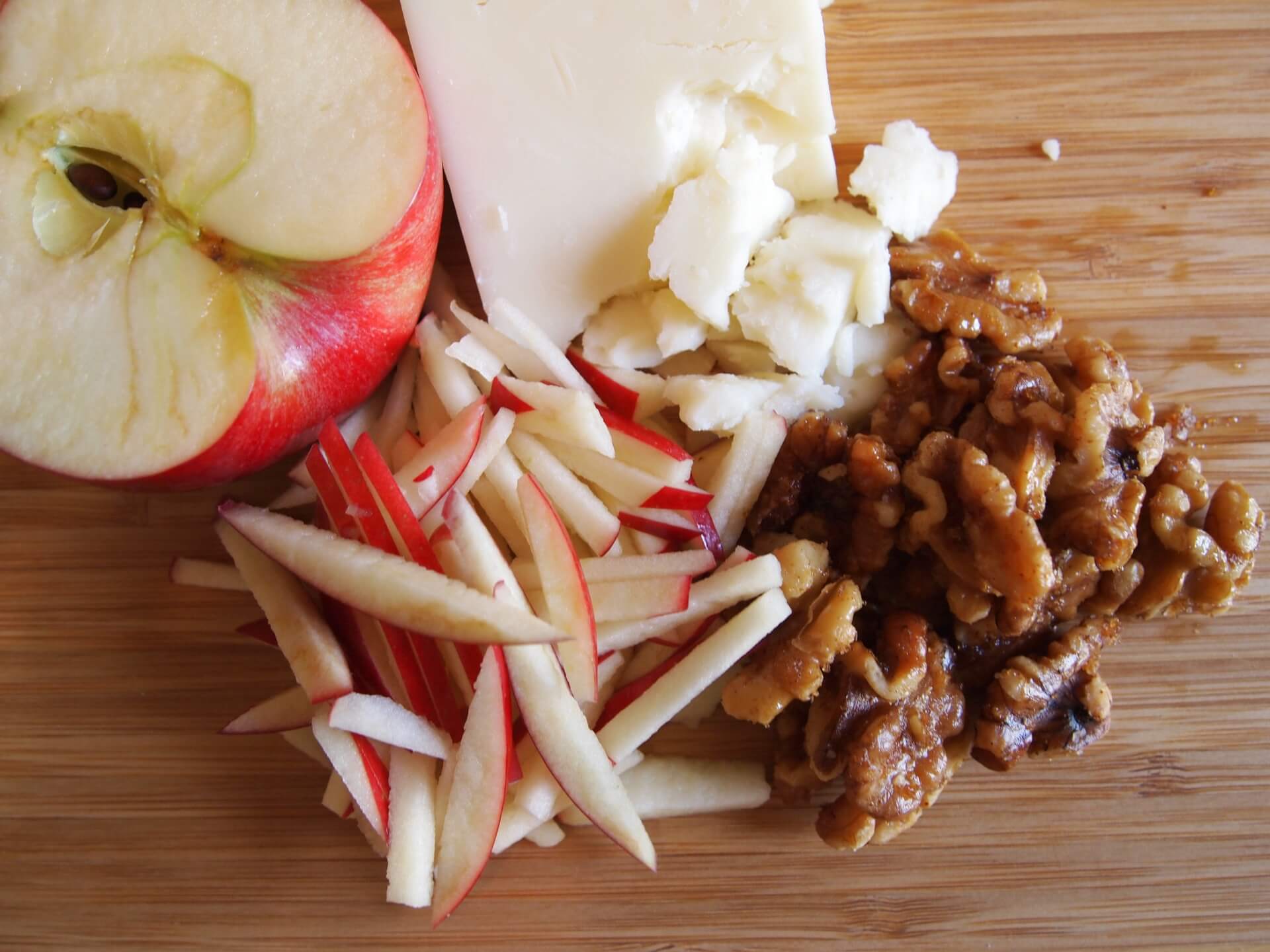
Avoiding carbs during a week of intense training will make it difficult to last the course. Glycogen is the storage form of glucose and it is glycogen which fuels our muscles during training. On the other hand, eating just carbs (or example a bowl of pasta) is likely to trigger a sharp spike in blood sugars levels and then the inevitable energy dip shortly afterwards.
Post-workout
When you are training intensely every day, you need to recover more quickly than usual, so you have a more limited window of opportunity in which to refuel. Post-session, focus both on re-fuelling and helping your muscles to repair, so a combination of carbohydrate and protein is needed.
During a strenuous workout, your body uses the glycogen (stored glucose) in your muscles as fuel. In order for your muscles to recover, you need to refuel those glycogen stores asap. Both carbohydrate and protein are required as a combination of the two enhances glycogen synthesis.
Protein is critical to repair damage to the tiny tears in our muscle microfibres, which result from strenuous exercise. These can cause delayed onset of muscle soreness (DOMs) and usually occur 48 hours after a workout. Amino acids from protein mend these, so it's important to get something like a protein shake in your system within 30 minutes. Within the next 90 minutes, aim to have a balanced meal which includes carbohydrates, protein and fats.
Combinations that work well include: porridge or bircher style muesli with almond butter; poached eggs with wholemeal spelt or sour dough toast; chicken, avocado and quinoa salad; butternut squash salad with chicken/haloumi/fish/tofu; or chickpea, feta and sweet potato salad.
Good carb and protein sources
Sweet potatoes, root vegetables, oats, brown/wild rice, quinoa and all whole grains are all good carb sources.
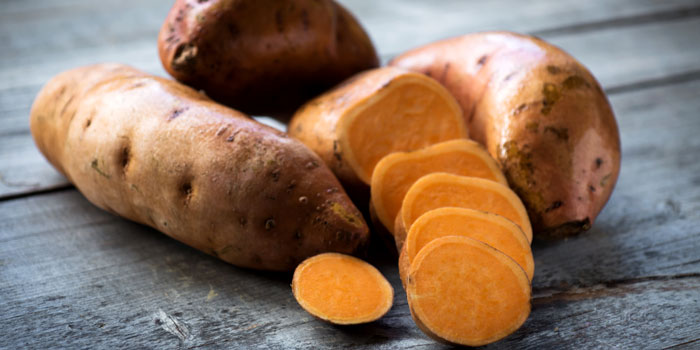
Get most of your protein requirements from whole food like eggs, beans, legumes, poultry, fish, haloumi, feta, nuts and occasional grass-fed beef. However good quality “clean” protein powder isolates are a good addition for smoothies and porridge.
Antioxidants
One thing to be wary of when doing strenuous exercise is the production of free radicals, which cause oxidative stress in our bodies, leaving us tired. Thankfully, antioxidants, mainly found in fruit and veg (especially berries, fresh herbs and green leafy veg) do a good job of scooping up these free radicals and protecting us.
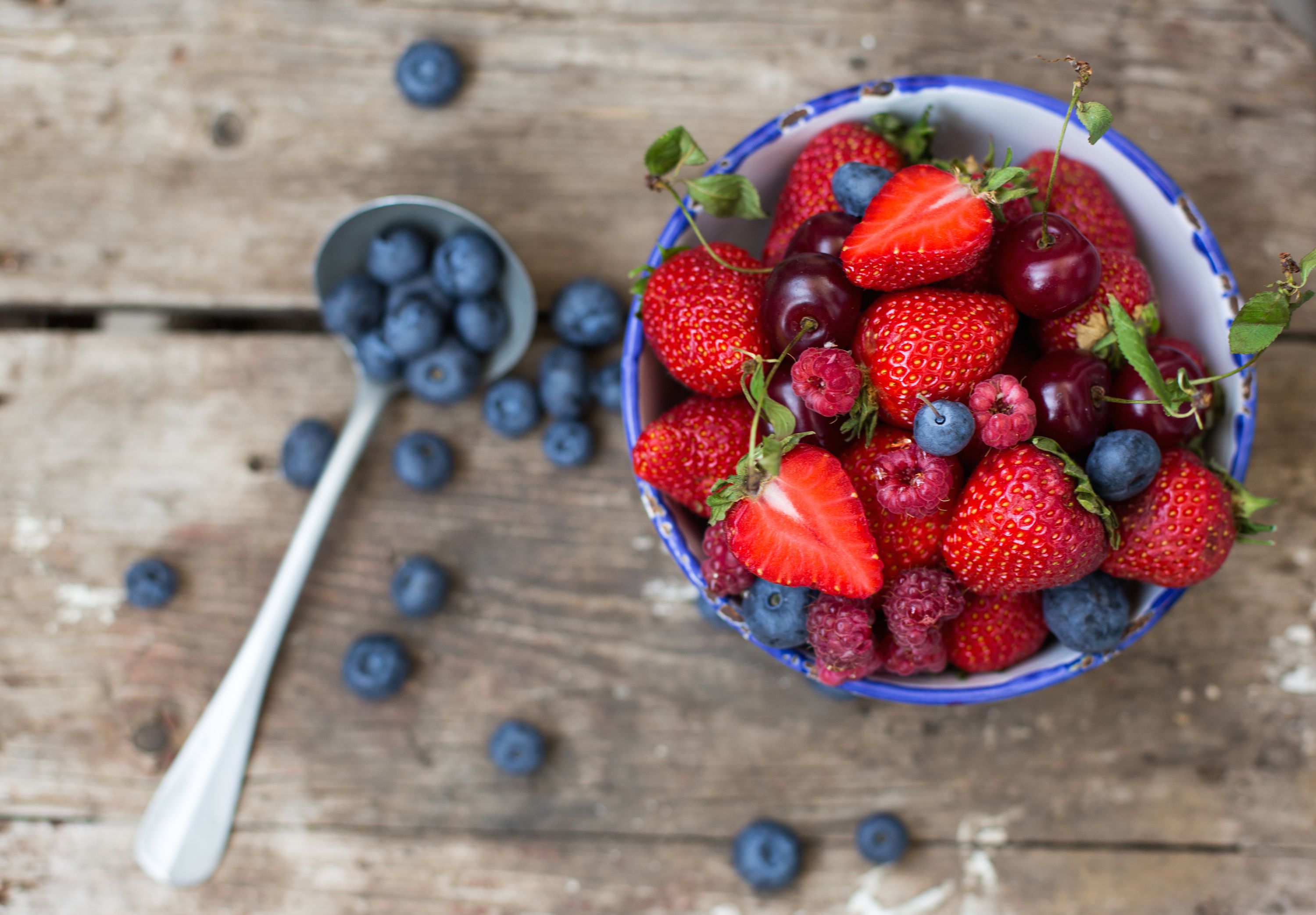
I would recommend you try to get seven portions of veg and two portions of fruit per day during Sweat Week (and every day!).
Hydration
Sweat Week is likely to produce plenty of sweat (!) and as you lose fluid quickly during your workouts, it's a good idea to drink fluids before as well as during a class. Don’t wait until you’re thirsty as you may well already be dehydrated at this point.
Sweating removes both fluids and electrolytes, which help transmit nerve signals in your body. Instead of reaching for sports drinks which are often loaded with unnecessary sugar, have some diluted coconut water as it contains five key electrolytes: sodium, calcium, magnesium, phosphorus and potassium. Although it contains some natural sugars, there are no added ones.
Consider a magnesium supplement in the evening to replenish those stores, aid sleep and pre-empt any muscle cramps. Finally, avoid eating sugary or starchy foods within 30 minutes of starting exercise as it can speed up dehydration.
Potassium
Potassium is an essential electrolyte. When potassium levels become unbalanced after exercise, muscle cramps and bloating can result. Potassium and sodium work together to balance fluids and electrolytes in the body.
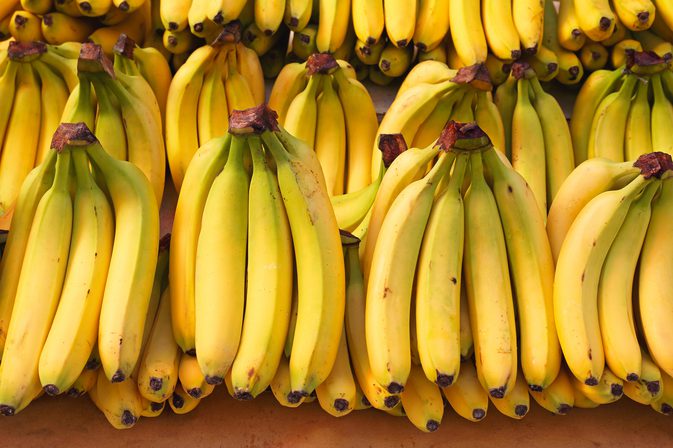
Bananas help correct this as they’re loaded with potassium. Other sources to think about include coconut water, sweet potato, dark leafy greens, avocado, lentils and carrots.
Indulgence Day
Having an indulgence or “re-feeding” day once a week where you eat what you fancy has a number of benefits. Apart from the obvious pleasure (knowing you have a day off often helps us stick to healthy eating in the long run), this short period of overfeeding kick-starts metabolism and fat-burning potential again and raises energy levels. It’ll put you back into the right frame of mind for some more training!
Boosting endurance with beetroot juice
Studies have demonstrated that athletes can increase their endurance by as much as 20% by drinking beetroot juice. This is due to the nitrate content, which helps reduce the amount of oxygen needed to sustain exercise, essentially making challenging efforts easier. Beetroot also helps muscles recover after intense exercise, is an effective anti-inflammatory agent and aids hydration as it is high in potassium.
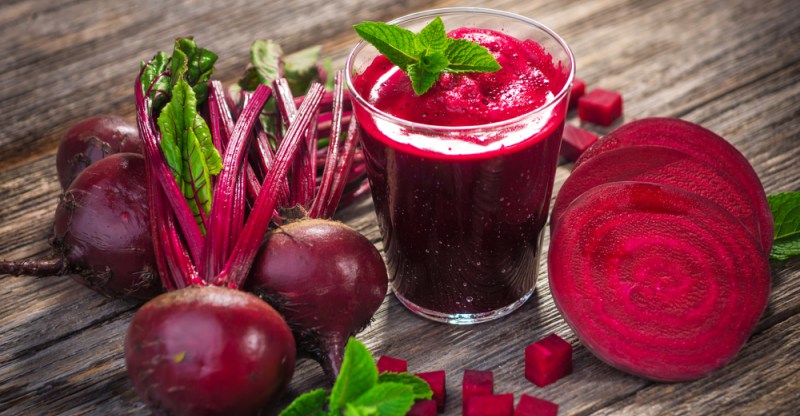
Chilled beetroot juice is a great option, but if the earthy taste isn’t for you, add beetroot powder (try ‘Of The Earth’) to your smoothies or try Biocare’s beetroot capsules.
Caffeine
Although caffeine can be a great help to get us up and out to exercise in the first place, try to limit it during the day and particularly during Sweat Week as it can lead to dehydration.
Finally, good luck! As ever, please do contact me with any questions or if you are interested in finding out more about a nutrition consultation. www.ruthsharif.com

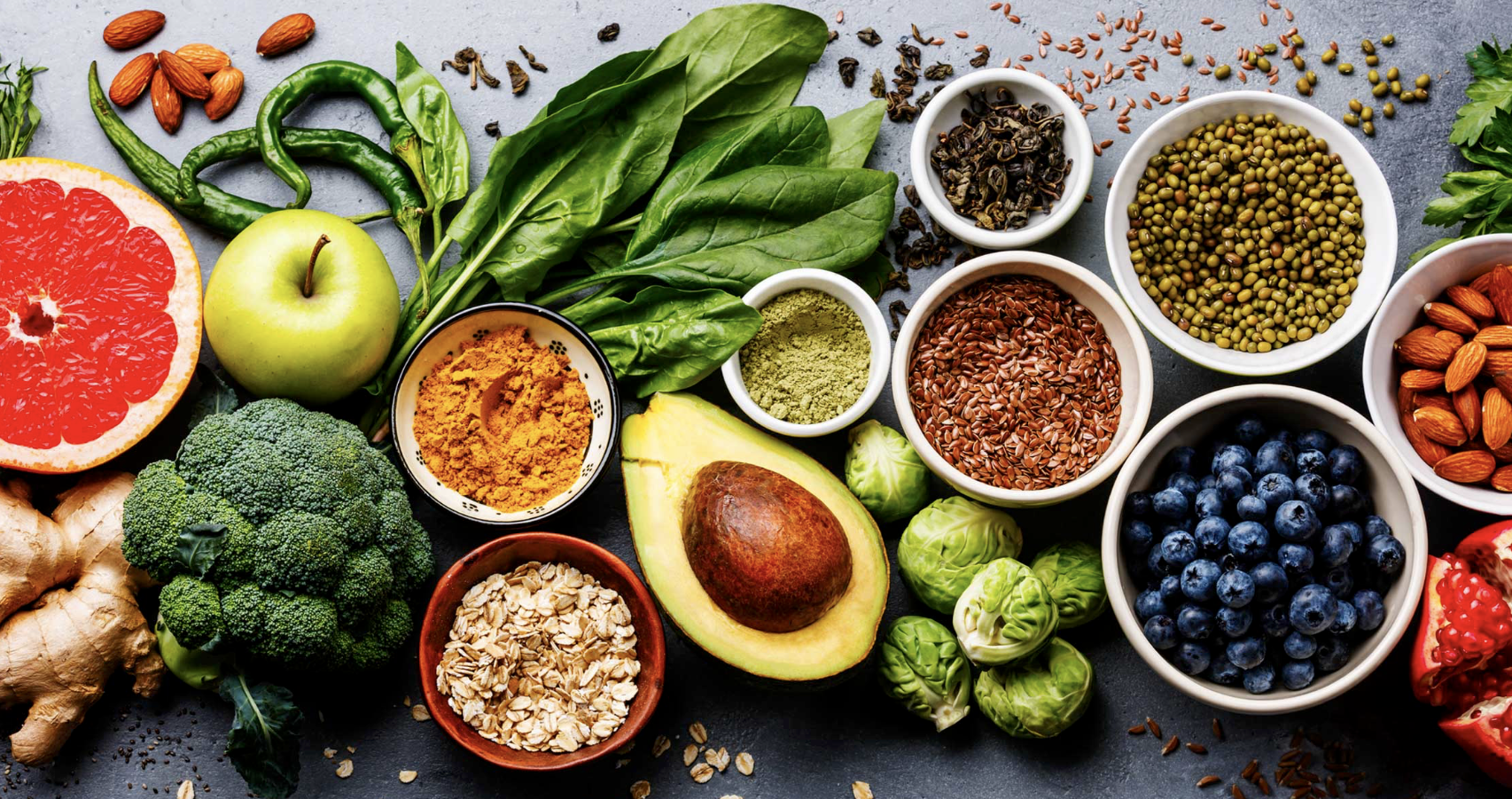
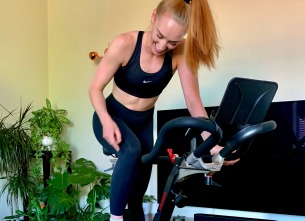
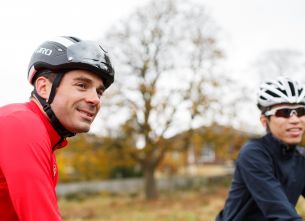
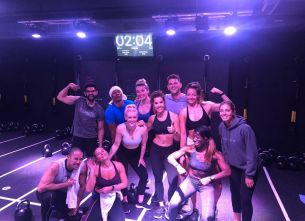

COMMENTS (0)
Be the first to comment!
Please login to comment